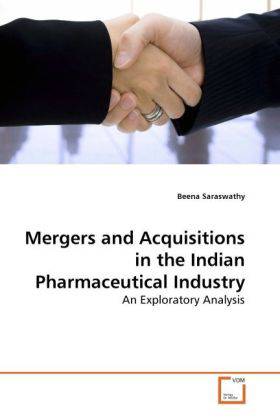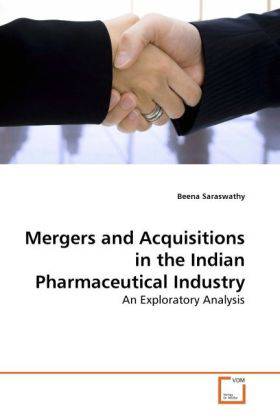
- Afhalen na 1 uur in een winkel met voorraad
- Gratis thuislevering in België vanaf € 30
- Ruim aanbod met 7 miljoen producten
- Afhalen na 1 uur in een winkel met voorraad
- Gratis thuislevering in België vanaf € 30
- Ruim aanbod met 7 miljoen producten
Zoeken
Mergers and Acquisitions in the Indian Pharmaceutical Industry
An Exploratory Analysis
Beena Saraswathy
Paperback | Engels
€ 58,45
+ 116 punten
Omschrijving
The corporate sector all over the world is restructuring its operations through mergers and acquisitions in an unprecedented manner. Pharmaceutical industry has been one of the sectors where large amount of mergers and acquisitions occurred. Theoretically speaking the occurrence of merger is viewed with caution since it is expected to enhance the market concentration, which will have important implications for pharmaceutical like industries, where the patients are forced to have less elastic demand for the medicines due to the zero compromise with life. Thus if increased amount of merger is leading to increased market concentration and thereby prices, it will adversely affect the consumer welfare. On the other hand many other economists argued to allow mergers owing to the counter argument that it will increase the efficiency of the firms and thereby increased consumer welfare in future. The present study is an attempt to understand these paradoxical arguments.
Specificaties
Betrokkenen
- Auteur(s):
- Uitgeverij:
Inhoud
- Aantal bladzijden:
- 124
- Taal:
- Engels
Eigenschappen
- Productcode (EAN):
- 9783639262117
- Uitvoering:
- Paperback

Alleen bij Standaard Boekhandel
+ 116 punten op je klantenkaart van Standaard Boekhandel
Beoordelingen
We publiceren alleen reviews die voldoen aan de voorwaarden voor reviews. Bekijk onze voorwaarden voor reviews.







